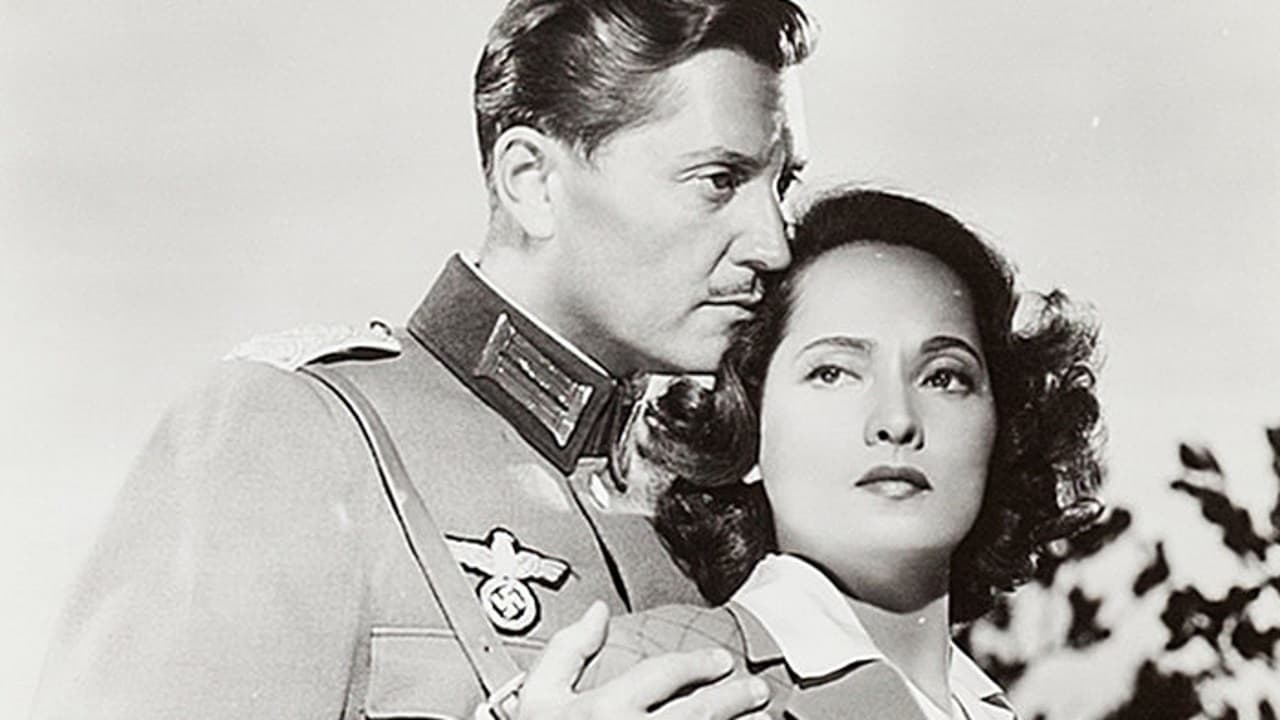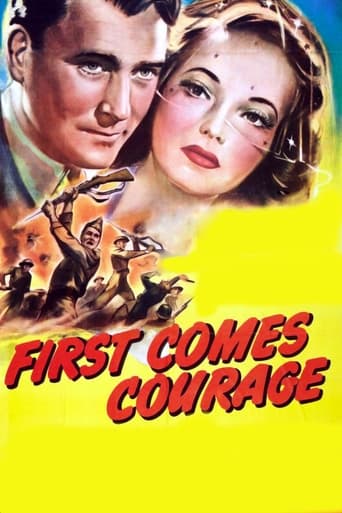

This Movie Can Only Be Described With One Word.
... View MoreHighly Overrated But Still Good
... View MoreBetter Late Then Never
... View MoreA Brilliant Conflict
... View MoreTwo of Hollywood's British colony are the leads in this Columbia Pictures war film about the Norwegian Resistance. Brian Aherne and Merle Oberon, a British barrister and a Norwegian woman who have some before the war history come together when British commandos raid Norway.Oberon has a dangerous assignment, she plays the mistress of a German Major Carl Esmond and as such is despised by her fellow Norwegians. But in fact she's a spy for the Allies. Still it's not easy to hang around knowing that you're vilified behind your back.Wouldn't you know it Aherne is landed by submarine and is to make contact with Oberon. He also knows the local Norwegian terrain. Can they get their mission done and keep their minds on the mission is the theme of First Comes Courage.Carl Esmond does a good job as the major who is a typical cruel Nazi, but whom you also feel a bit sorry for as Oberon is making a fool of him. As such he has a bit more dimension to him than Conrad Veidt as Major Stroesser in Casablanca. After a lot of hot and heavy action when the commandos do raid, the ending is a Casablanca like one and I'll not say more.First Comes Courage is distinguished by the good performances of its leads, Oberon, Aherne, and Esmond and the first rate action sequences. Kudos also to Isobel Elsom as a Norwegian nurse who sacrifices much herself. The film hardly has the staying power of Casablanca, the difference between the major leagues and Double A baseball.
... View MoreMerle Oberon and Brian Aherne star in First Comes Courage," a 1943 film directed by Dorothy Arzner. Oberon plays Nicole Larsen, a Norwegian who is seen by the other townspeople as a traitor because she's dating a Nazi (Carl Esmond). In truth, she's using him to get information to the underground. When a British beau is smuggled into the country, he is later captured, and she has to get him away from the Nazis.Merle Oberon was underrated as an actress. She does a terrific job here (as she often did elsewhere), especially in a big, dramatic scene toward the end."First Comes Courage" is one of many propaganda films released during the war, and one of several that dealt with the presence of the Nazis in Norway, where politician Quisling helped the Nazis conquer his own country.Not great, but okay.
... View MoreIf for no other reason, this incredible movie should be seen to enjoy the acting skill of Merle Oberon, especially in the scene where she finally reveals to her husband, the Nazi Major, that she loathes and despises him and that she has only been with him in order to spy on Nazi activities. Directed by Dorothy Arzner, a pioneer among women directors, the movie has an endearing ending in which Merle Oberon turns her back on her lover in order to carry on her underground activities. Made in the middle of World War II, this movie is evidence of the producers and writer's knowledge of the horror of the Nazi occupation in Norway, and it presented a powerful message to the moviegoers of the day that any sacrifice was necessary to defeat the German menace. The script for this movie was based on "The Commandos", a novel by Elliot Arnold.
... View MoreDorothy Arzner's last directorial effort is replete with her usual feminist slant on things as Merle Oberon -- playing a Norwegian -- is caught between romantic Nazi officer Carl Esmond, who wants to marry her and British spy Brian Aherne who loves her, which is all a great inconvenience to her winning the war for Norway. The men are busy playing with their big tanks and their large meetings -- the state marriage of Esmond and Oberon with its TRIUMPH OF THE WILL sized set decorations is very funny. The occasional battlefield shots looks to me like they are modeled on those sets of plastic soldiers that used to be advertised on the back of comic books.Oberon, appropriately enough, seems to spend much of her time trying to keep a straight face as Esmond tries to romance her into marriage. It fits neatly into the sort of movie that Arzner used to direct Ruth Chatterton in in the early 1930s, but here, deprived of her favorite screenwriter, Zoe Akins, and forced into the confines of wartime propaganda, she still manages to get in the occasional sly dig.
... View More